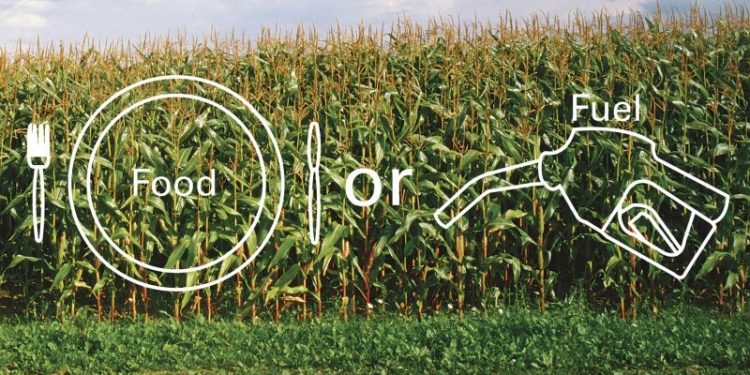
Bharat Jhunjhunwala
Prime Minister Narendra Modi has blamed the Congress for not pursuing the manufacture of biofuels, such as ethanol, which can be produced from molasses, a by-product of the sugar industry. Alcohol is produced from molasses at present; it can instead be used to produce ethanol. In fact, sugarcane juice itself can be converted to ethanol directly. Brazil has achieved great success in this and has helped the South American nation cut its dependence on imported oil. India seems to be trying to replicate the success of Brazil. Efforts are also being taken to grow jatropha, neem and other non-edible oilseeds on wastelands. They, too, can be converted into biodiesel. Biofuels are being seen as renewable sources of energy that can help break India’s dependence on imported oil.
The advantages of biofuel are known. But the case for their use cannot be made on this basis alone. We have to compare the benefits they promise with those the alternative use of land can deliver. The tricky part is to determine which crop farmers could grow and how — by biofuel crops or other alternatives such as, say, natural forests — they could regenerate degraded land.
Natural forests will absorb more carbon than a jatropha plantation, owing to their biodiversity. They will also create more jobs: People can gather tendu leaves, berries, wood for fuel and grasses. By contrast, jatropha plantations can yield seeds only once a year. Also, more local jobs and income are generated in the cultivation of paddy, wheat and other food crops and not sugarcane. The former provides them with jobs in ploughing, planting, weeding and harvesting many times a year. Thus the case for biofuel cannot be made on the grounds of carbon footprint reduction alone.
Biofuels are being promoted not because they are clean or provide more jobs or incomes to the poor. They are being promoted because they provide benefits to the rich. Biofuels are required to run the rich man’s car.
There are many disadvantages of using biofuels. Water is consumed in large quantities in the cultivation of sugarcane. Water adequate to grow three crops of wheat and paddy on four acres is consumed in growing one acre of sugarcane. Biodiversity is compromised by sugarcane or jatropha cultivation.
Man is the animal on top of the food chain. It is his responsibility to carry other animals with him just like a prime minister has to carries with him all sections of the society. But in the cultivation of jatropha and sugarcane only the upper sections of society are benefited. Ethanol helps the rich ply cars on roads. The poor get nothing. By contrast, there are greater benefits from the cultivation of natural forests or foodgrains. The poor get food to eat, the cow gets straw, the horse gets bran, the child gets milk and the homemaker gets fuel from cow dung. The natural forest provides berries for children, home for the deer and elephants and place for small and big birds to make different types of nests. Thus biofuels fail on the tests of social benefit and biodiversity.
The experience of Brazil is not applicable to us. Our land-to-population ratio is very different. 45.4 square kilometres of land is available per 1,000 people in Brazil against only 2.7 square kilometres in India. It is possible for Brazil to use large tracts of land for the cultivation of sugarcane without impairing its food security. It is not so for us. Greater cultivation of sugarcane translates into lower production of foodgrains in the country.
Water is no different. Brazil has 29,066 cubic metres per person of renewable sources of water against only 1,152 cubic metres in India. Ground water levels are falling steeply across the country owing to the overexploitation of this resource. Greater cultivation of sugarcane will only put greater pressure on this scarce resource and it will affect our food security adversely.
RK Pachauri, the director of Tata Energy research Institute, headed the Inter-governmental Panel on Climate Change, which was awarded Nobel Peace Prize. Pachauri has tried to address these objections against biofuel. He says biofuels can be produced from agricultural waste such as wheat straw and bagasse. Sugar mills use bagasse to produce power. Wheat and paddy straw are used as fodder for livestock. Conversion of straw into biofuels will deprive livestock of fodder. Second argument is that a crop cycle can be made that takes care of both food crops and fuel crops.
This ignores the fact that a crop cycle already exists which rotates different food crops. Introduction of fuel crops in that cycle will only edge out part of the food crops. The third argument is that cultivation of fuel crops will lead to higher incomes for the poor which will help them buy more foodgrains. But a similar increase in their incomes will take place from greater cultivation of value-added food crops such as vegetables. These scientists, it seems, promote the interests of their paymasters in ignoring the adverse impact of biofuels on the common man.
Biofuels are being promoted not because they are clean or provide more jobs or incomes to the poor. They are being promoted because they provide benefits to the rich. Biofuels are required to run the rich man’s car. The poor man loses in the form of depletion of ground water, loss of biodiversity and less fodder for his cow. A World Bank paper titled ‘Review of Environmental, Economic and Policy Aspects of Biofuels’ by Deepak Rajagopal and David Zilberman says explicitly: “We are aware that the use of biomass for household heating or electricity production is very important, especially among the poor in developing countries, while demand for liquid biofuels is largely from the richer sections of society.”
The World Bank still supports biofuels. Thankfully, we are not paid by the World Bank. We must, therefore, adopt these crops with great care remembering that no civilisation has survived that has not taken care of its poor.
The writer is former professor of economics, IIM Bangalore.







































